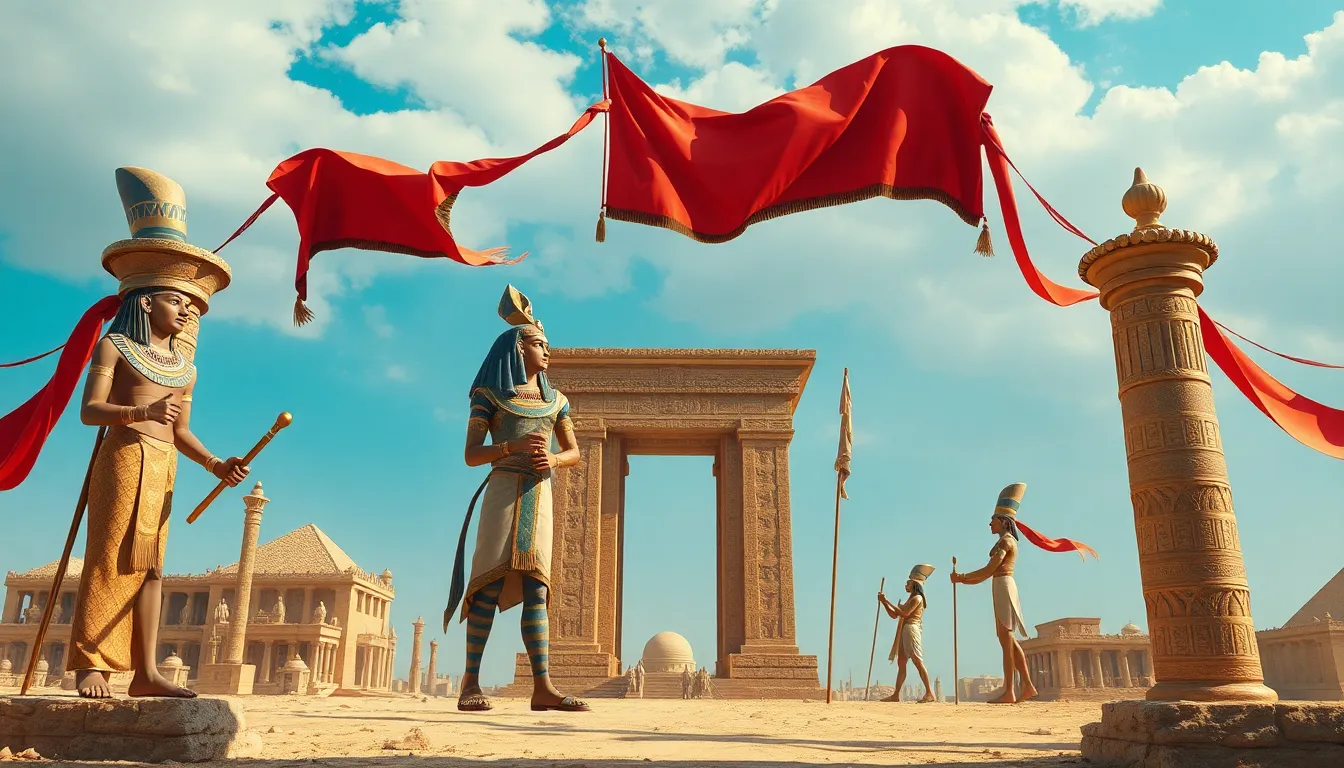The Importance of Festivals in Ancient Egyptian Society
I. Introduction
Ancient Egyptian civilization, one of the most fascinating and enduring cultures in human history, flourished along the banks of the Nile River for thousands of years. Renowned for its monumental architecture, intricate hieroglyphs, and profound religious beliefs, ancient Egypt was a society deeply intertwined with its cultural and religious practices. Among these practices, festivals played a vital role, acting as a bridge connecting the people to their deities, the changing seasons, and each other.
This article aims to explore the significance of festivals in ancient Egypt, examining their historical context, religious importance, social implications, economic impact, artistic expressions, and their role in governance and political power.
II. Historical Context of Festivals in Ancient Egypt
The festivals of ancient Egypt can be traced back to the earliest dynasties, with significant occasions celebrated throughout the year. These festivals often coincided with agricultural cycles, religious observances, and seasonal changes.
A. Timeline of significant festivals
- Wepet Renpet (New Year Festival)
- Opet Festival
- Wadi Festival
- Hathor’s Festival
B. Evolution of festival practices over dynasties
As dynasties rose and fell, the practices surrounding festivals evolved. Each pharaoh would often introduce new elements or revitalize ancient traditions to enhance their legitimacy and connection to the gods.
C. Influence of geography and climate on festival timing
The geographical and climatic conditions of Egypt, particularly the annual flooding of the Nile, dictated when certain festivals were held. The agricultural calendar was crucial for determining the timing of harvest festivals, which celebrated the bounty of the land.
III. Religious Significance of Festivals
Festivals in ancient Egypt were inextricably linked to the religious beliefs of the people. They provided opportunities for worship, offerings, and community gatherings centered around their complex pantheon of gods.
A. Connection between festivals and religious beliefs
Festivals were often held in honor of specific deities, reinforcing the people’s devotion and ensuring the favor of the gods. They served as a reminder of the divine forces that governed the natural world.
B. Major deities celebrated during festivals
Several deities were particularly prominent during festival celebrations:
- Amun
- Osiris
- Isis
- Horus
- Hathor
C. Rituals and ceremonies performed during these events
The rituals performed during these festivals varied widely, including:
- Processions with offerings
- Ritual dances and music
- Reenactments of mythological events
- Feasting and communal gatherings
IV. Social and Community Aspects of Festivals
Festivals served as a crucial mechanism for community bonding and social cohesion in ancient Egyptian society.
A. Role of festivals in community bonding
These celebrations brought together people from various walks of life, fostering a sense of unity and shared identity among participants.
B. Participation of different social classes
Festivals were inclusive, allowing participation from all social classes, from pharaohs and priests to farmers and artisans. This communal aspect helped to diminish social barriers, at least temporarily.
C. Festivals as a means of social cohesion
The shared experiences and joyous occasions of festivals helped reinforce social ties and communal spirit, making them an essential aspect of daily life.
V. Economic Impact of Festivals
Festivals were not only cultural and religious events but also significant economic drivers in ancient Egypt.
A. Festivals as drivers of local economies
The influx of visitors for festivals stimulated local markets, boosting trade and commerce.
B. Trade and commerce associated with festival activities
Merchants would set up stalls to sell goods, ranging from food and beverages to religious artifacts, benefiting from the increased foot traffic.
C. Employment opportunities created during festival seasons
Festivals created temporary employment opportunities for many, including artisans, performers, and vendors.
VI. Festivals and Artistic Expression
The vibrant festivals of ancient Egypt also served as platforms for artistic expression, highlighting the culture’s rich artistic heritage.
A. Influence on art, music, and dance
Festivals inspired various forms of artistic expression, including:
- Musical performances
- Dramatic reenactments
- Artistic displays and decorations
B. Artistic representations of festivals in ancient artifacts
Many artifacts, such as pottery and wall paintings, depict scenes from festivals, providing valuable insights into the cultural practices of the time.
C. Preservation of cultural heritage through artistic expression
Through art and performance, the legacy of ancient festivals has been preserved, influencing future generations and cultures.
VII. Festivals in the Context of Governance and Political Power
Festivals also held significant political implications, serving as a means for the pharaohs to reinforce their power and authority.
A. Role of the Pharaoh in festival organization
The pharaoh often played a central role in organizing and leading festivals, showcasing their divine status and connection with the gods.
B. Festivals as a tool for political propaganda and legitimacy
By participating in and promoting festivals, pharaohs could reinforce their legitimacy and authority, linking themselves to the divine.
C. Impact of festivals on the relationship between rulers and the populace
Festivals allowed rulers to connect with their subjects, fostering goodwill and loyalty among the populace through shared religious and cultural experiences.
VIII. Conclusion
In conclusion, festivals in ancient Egypt were multifaceted events that held significant importance across various aspects of society. They served as crucial cultural and religious observances, contributed to social cohesion, impacted the economy, facilitated artistic expression, and reinforced the political power of the pharaohs.
The legacy of these ancient celebrations continues to resonate today, reflecting the enduring human need for cultural expression and community bonding. As we study and celebrate our own cultural traditions, we can appreciate the historical significance of ancient Egyptian festivals and their role in shaping human history.




